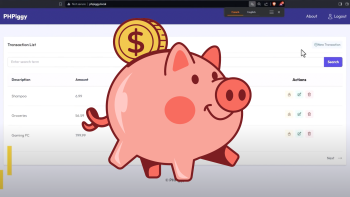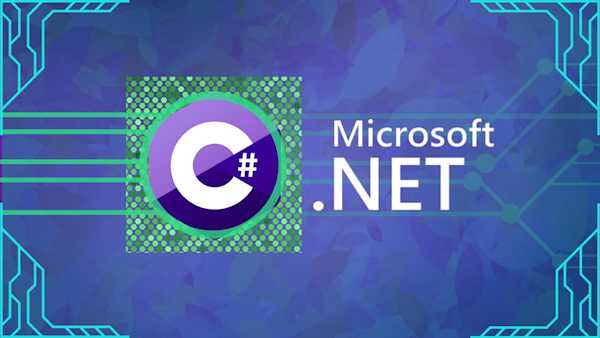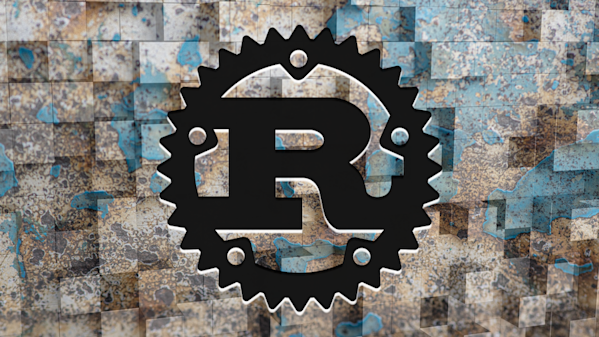What you'll learn
- Learn PHP's role in backend web development for dynamic content and database interactions
- Explore web development career opportunities with PHP, including CMS and freelancing
- Build a real-world PHP project to enhance your portfolio and apply practical skills
- Master PHP fundamentals and modern features like arrow functions and nullish coalescing operators
- Dive into object-oriented programming in PHP, covering encapsulation, abstraction, and polymorphism
- Familiarize yourself with professional tools like Composer and Packagist for efficient development
- Focus on core PHP skills, excluding specific frameworks and CMS for a solid PHP foundation
- Experience a transformative learning journey from basics to deploying a complete PHP project
PHP remains one of the most accessible and versatile programming languages you can learn, especially if you're eyeing a career in web development.
Its simplicity for beginners, combined with its powerful features for building complex applications, makes it a surprisingly sought-after skill in the tech industry.
Learning PHP will open doors to endless opportunities in web development, freelancing, and beyond. Plus it sets a strong foundation for learning other web technologies and frameworks.
By enrolling today, you’ll also get to join our exclusive live online community classroom on Discord where you'll learn alongside thousands of students, alumni, mentors, TAs and Instructors.
What Is PHP and Why Is It Useful?
PHP is a widely-used open-source scripting language. It's unique because unlike client-side languages like JavaScript, PHP scripts are executed on the server, making it a powerful tool for backend web development. You can do things like collect form data, generate dynamic page content, or send and receive cookies. PHP is known for its ease of learning, especially for newcomers to programming. Yet, it's robust enough for complex applications.
Why Learn PHP?
PHP, with its significant role in web development, opens doors to various jobs, particularly for the web. Web developers use PHP to create and maintain websites, focusing on server-side logic, database interactions, and integration of user-facing elements developed by front-end developers. Most importantly, PHP is the backbone of popular CMSs like WordPress, Drupal, and Joomla. Developers specializing in these systems use PHP to create themes, plugins, and custom functionalities for websites. You can also have a successful career in freelancing as PHP is a highly popular language on freelance platforms.
Here's What This PHP Bootcamp Covers:
Let's dive into the details of exactly what you'll learn in this PHP course:
Section 1: Introduction Let's kick things off! In this section, I’ll get you caught up to speed with what PHP is and why you’d want to learn it. By the end, we’ll set up an environment in Repl.it to start writing PHP.
Section 2: Working with Data This section focuses on variables and how we can manipulate variables. We’ll explore basic data types, such as numbers, strings and booleans. Afterward, we’ll dive into various operators and talk about the importance of operator precedence.
Section 3: Adding Logic You’ll learn about how to control the flow of logic with conditional statements, match expressions and switch statements. Other features you can expect to learn about are loops and functions. In no time, you’ll be writing custom functions with parameters and return values.
Section 4: Beginner PHP Challenges To help reinforce what we’ve learned so far, you’ll be given a few exercises with explanations for each exercise.
Section 5: Filling in the Gaps We’ll cover some final topics before getting into more advanced topics, such as variadic functions, constants, and including files. Most importantly, you’ll learn how to read the PHP documentation so that you’ll be able to pick up new functions after finishing the course. To top it off, we’ll end the section talking about working with the file system.
Section 6: More PHP Challenges You’ll be given more challenges to help you hone your PHP skills. These challenges will force you to look up online for solutions and learn new functions you weren’t familiar with since starting the course.
Section 7: Object-Oriented Programming (OOP) Learn about object-oriented programming and the four pillars: encapsulation, abstraction, encapsulation, and polymorphism. PHP offers a lot of features for working with classes, such as traits, namespaces, overriding methods, interfaces, anonymous classes. On top of learning to write your own PHP classes, we’ll explore some of PHP’s classes such as the DateTime class.
Section 8: OOP Challenges In this section, you’ll be given challenges where you’ll need to use OOP to solve them.
Section 9: Master Project: Framework Foundation Get started with setting up the master project for this course. We’ll be building an expense tracking application. During setup, you’ll learn how to install PHP on your local machine, as well as a database, Composer, and Git.
Section 10: Master Project: Routing Create a custom router in our custom framework to detect requests and render the correct content based on the path. During this process, you’ll use regular expressions to also work with dynamic paths and then instantiate classes dynamically.
Section 11: Master Project: Template Engine Create a custom template engine to isolate templates and render HTML with PHP. We’ll also take the time to make sure data is secure by escaping it. Before sending the template, we’ll use an output buffer to contain the HTML until PHP is finished executing.
Section 12: Master Project: Containers and Dependency Injection Learn how to use provide dependencies to our controllers. We’ll develop a custom container where our framework will be able to identify and search for dependencies. PHP has a feature called the reflection API, which we’ll leverage to understand a class's dependencies. This logic will then be applied to middleware to help us separate logic even further.
Section 13: Master Project: Form Validation Create a class to help us perform custom validation. You’ll be able to validate various fields from emails to numeric input fields. We’ll also set up a system where error messages can be flashed upon subsequent requests. Most importantly, you’ll learn about PRG (Post-Redirect-Get) to understand how to properly handle form submissions.
Section 14: MySQL Here we’ll step away from the master project for a brief moment to talk about MySQL. We’ll learn how to properly perform queries, sanitize input, and get into data modeling before committing to a database design.
Section 15: Master Project: User Registration and Authentication Back to the Master Project! We’ll insert a user into our database and authenticate them into our system. You’ll learn crucial security concepts, such as hashing, encryption, session hijacking, CSRF, and protecting routes. We’ll then integrate this feature with our template so that we can dynamically render content based on if the user is authenticated or not.
Section 16: Master Project: CRUD Transactions Learn how to establish relationships between data by building a feature to upload transactions. Users will be able to create, read, update and delete data. We’ll also allow them to sort and filter data from the dashboard with pagination. Lastly, we’ll update our router to allow HTTP method overriding for form submissions.
Section 17: Handling File Uploads Here we’ll talk about file uploads. On the backend, we’ll validate file uploads by checking their mime type, file size, and filename. We’ll also add additional security checks to only allow files to be viewed and downloaded by the correct user, so that users can’t view other user files.
Section 18: Master Project: Everything Else In this section, we’ll talk about additional issues or topics that can be implemented in our master project. You’ll learn about magic numbers for better developer experience, destroying session cookies, and rendering a 404 page for routes that don’t exist in application.
Section 19: Master Project: Deployment It's time to deploy our project for the world. You’ll learn how to use SSH to connect to a server, run commands to install packages, and upload a project with Git.
Bonus: This course, like all Zero To Mastery courses, is a living, breathing thing. That means it's constantly being updated and expanded so that it'll be your go-to place to find and learn the latest PHP best practices as you develop and grow in your career.
What's The Bottom Line?
This course is not about making you just follow along so that when you are done with the course you don’t know what to do other than watch another tutorial.
Instead, this course will push you and challenge you to go from a beginner to a top 10% PHP Developer 💪.
And... you have nothing to lose.
You can start learning right now and if this course isn't everything you expected, we'll refund you 100% within 30 days. No hassles and no questions asked.
When's the best time to get started? Today!
There's never a bad time to learn in-demand skills. But the sooner, the better. So start learning PHP today by joining the ZTM Academy. You'll have a clear roadmap to build your own games, get hired, and advance your career.
Join Zero To Mastery Now





